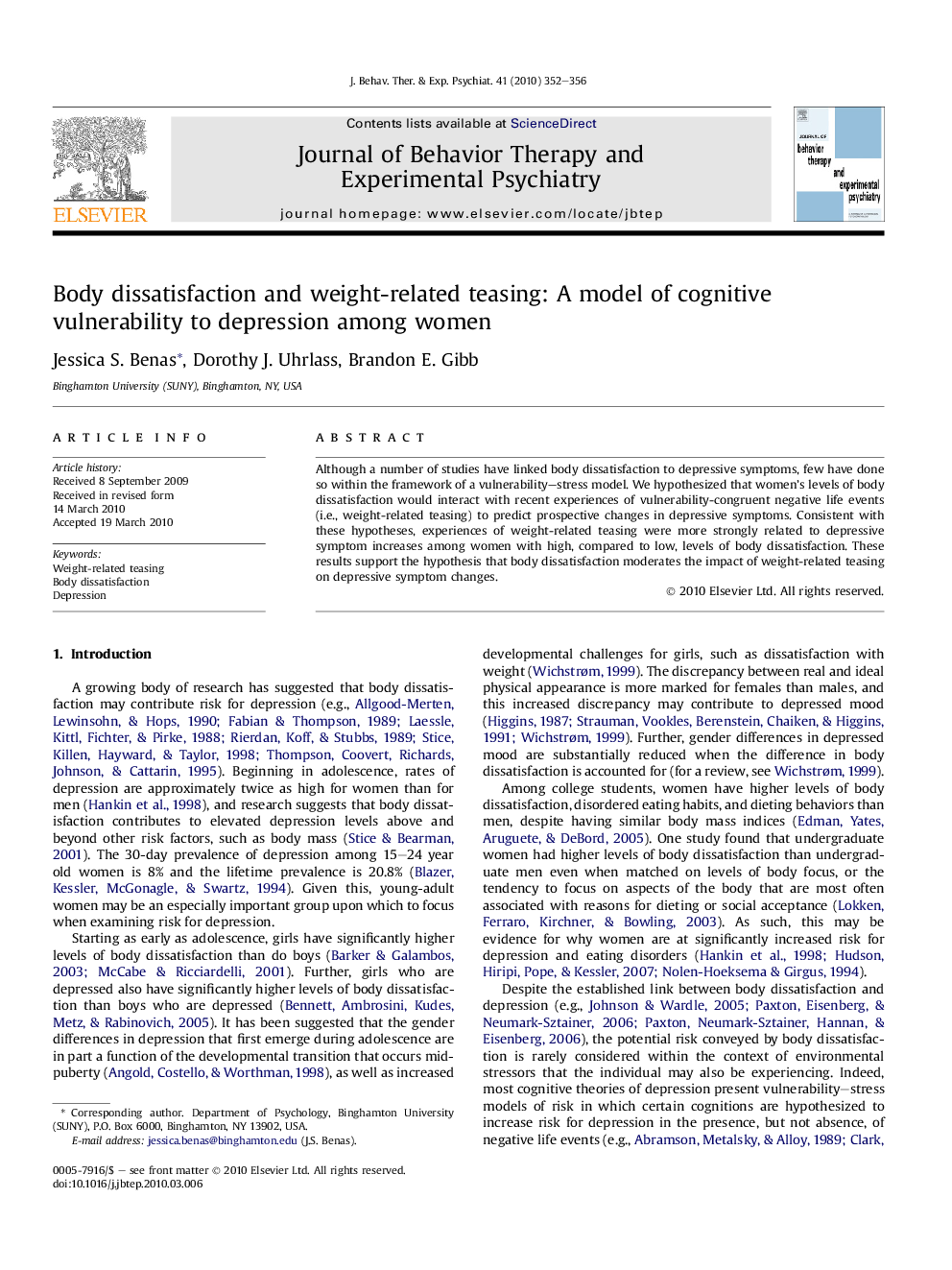ترجمه فارسی عنوان مقاله
نارضایتی از بدن و اذیت کردن مرتبط با وزن: مدل آسیب پذیری شناختی برای افسردگی در زنان
عنوان انگلیسی
Body dissatisfaction and weight-related teasing: A model of cognitive vulnerability to depression among women
| کد مقاله | سال انتشار | تعداد صفحات مقاله انگلیسی |
|---|---|---|
| 36383 | 2010 | 5 صفحه PDF |
منبع

Publisher : Elsevier - Science Direct (الزویر - ساینس دایرکت)
Journal : Journal of Behavior Therapy and Experimental Psychiatry, Volume 41, Issue 4, December 2010, Pages 352–356
ترجمه کلمات کلیدی
اذیت مرتبط با وزن - نارضایتی از بدن - افسردگی
کلمات کلیدی انگلیسی
Weight-related teasing; Body dissatisfaction; Depression

